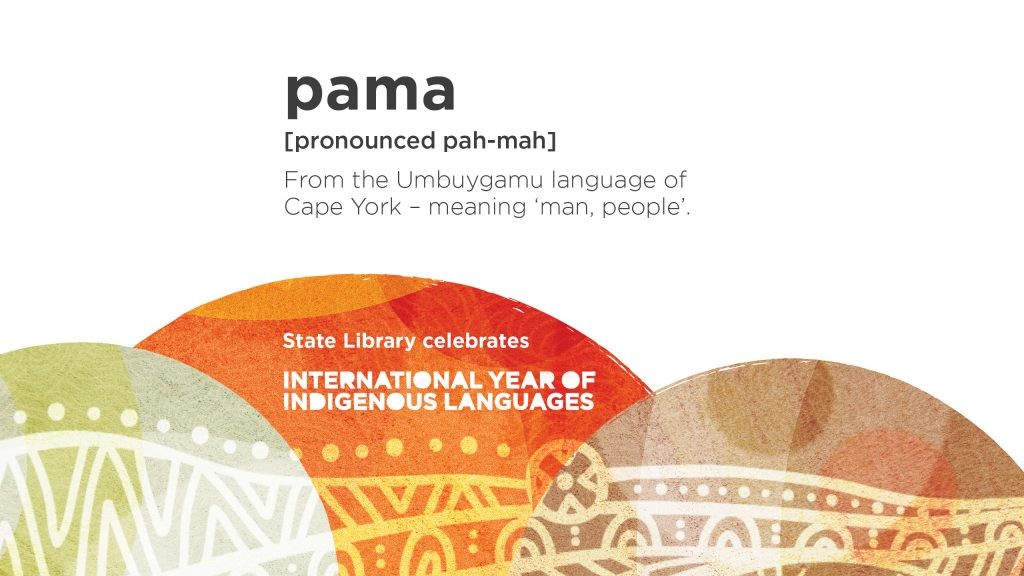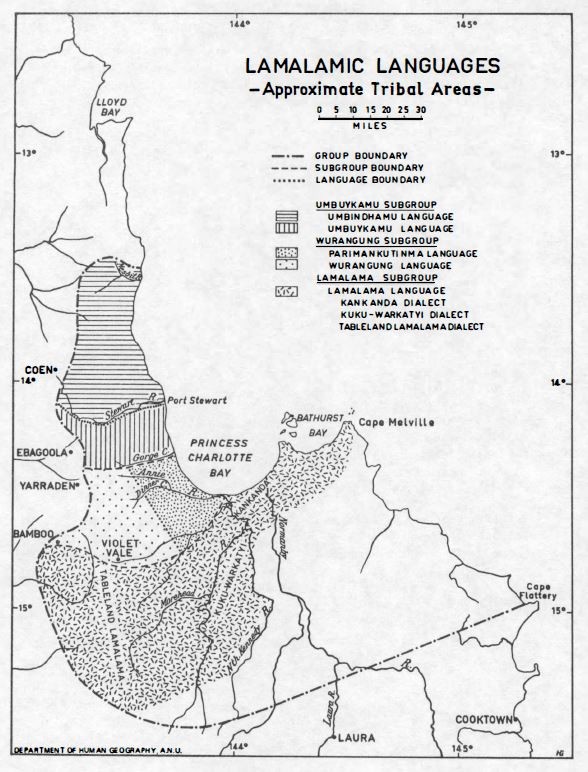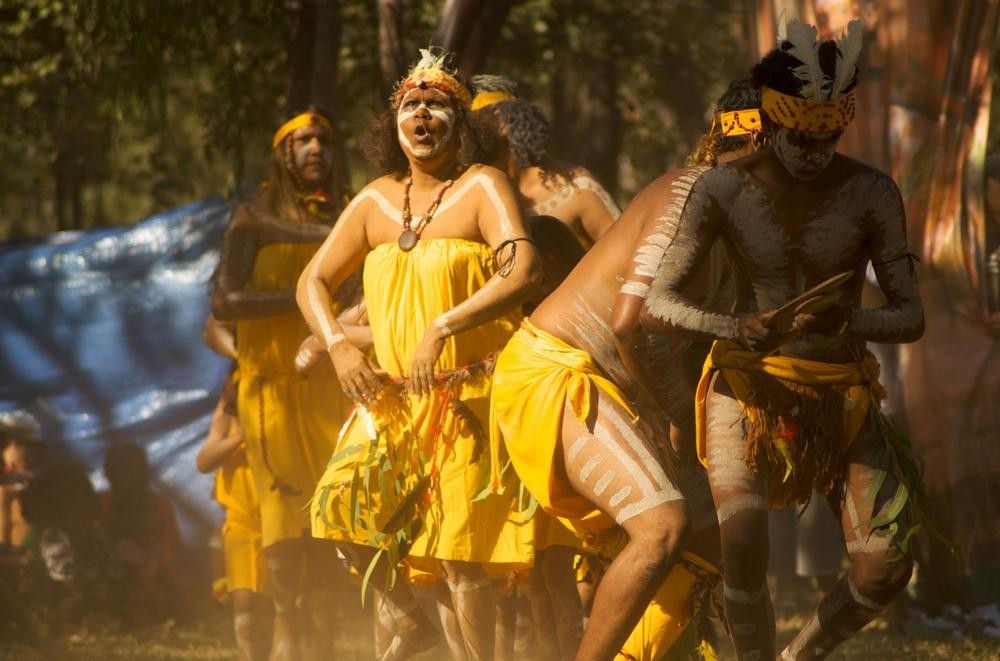2019 International Year of Indigenous Languages: Word of the Week - Week Forty-Six.
By administrator | 12 November 2019
As part of State Library's commitment to the 2019 International Year of Indigenous Languages, we will be promoting a 'word of the week' from one of the 125+ Aboriginal and Torres Strait Islander languages and dialects from across Queensland.

This week's word is pama from the Umbuygamu language of Cape York. It means 'man' or 'people' and is found and used in a number of languages in Far North Queensland, ranging from Cairns north to the tip of Cape York.

Umbuygamu also known as Umbuykamu, Umpuykumu, etc. is often categorised under Morrobalama as part of the Lamalamic group of languages located in the Princess Charlotte Bay region of Eastern Cape York.

The above image from the Journal of the HMS Endeavour indicates that in 1770, Cook at Wahalumbaal Birri also recorded bamma / bama as the word for 'a man'. Today, it is used as a general reference to people and provides the basis for Pama-Nyungan as a term to describe Australia's largest language family. This family contains over 300 languages and extends from the Pama languages of Australia's northeast to the Nyungan languages of the southwest.

The centrality of people to Aboriginal and Torres Strait Islander language will be a feature of State Library's upcoming language exhibitions. Join the conversation as we post a new word for each week!
Week Forty-Six 12-18 November 2019.
#slqIYIL #IYIL2019 #IYIL #IY2019WordoftheWeek #SLQIndigenousLanguages
Desmond Crump
Indigenous Languages Coordinator, State Library of Queensland
State Library of Queensland Aboriginal and Torres Strait Islander Languages Webpages
State Library of Queensland Aboriginal and Torres Strait Islander Languages Map
Jarjum stories: A kuril dhagun showcase focusing on children’s books and Aboriginal and Torres Strait Islander languages. 19 October 2019-10 May 2020.
Spoken: celebrating Queensland languages: A major exhibition exploring the survival and revival of Aboriginal and Torres Strait Islander languages throughout Queensland. Join in the many talks and events to celebrate the rich and diverse languages spoken today. Opens 21 November 2019-19 April 2020.
UN IY2019 Links
UN International Year of Indigenous Languages webpages
UN International Year of Indigenous Languages Resources
References
The word of the week has been sourced from the following item in the State Library collections.
Source: Ogilvie, S. (1994) The Morrobalama (Umbuygamu) language of Cape York Peninsula, Australia. Online access via One Search.
Further Reading
Other materials in the State Library collections relating to Umbuygamu and neighbouring languages, include the following:
Dixon, R. and Blake, B. (Eds) (1979) Handbook of Australian Languages. G 499.15 1979
Gulumba Dance Group, Laura. JOL Negative number: 10183-0001-0001
Journal of HMS Endeavour, 1768-1771. NLA Manuscript
Kinslow-Harris, J., Wurm, S. and Laycock, D. (1971) Papers in Australian linguistics, no. 4. Q 499.15 kin
Ogilvie, S. (1994) The Morrobalama (Umbuygamu) language of Cape York Peninsula, Australia. Online access via One Search.
Passani, P., Lakefield, A. with Popp. T. (2006) Lamalama country : our country : our culture-way. Edited by Bruce Rigsby and Noelene Cole. P 305.89915 BAS
Sutton, P. (ed) (1974) Languages of Cape York: papers presented to the Linguistic Symposium, Part B, held in conjunction with the Australian Institute of Aboriginal Studies Biennial General Meeting, May, 1974. Australian Institute of Aboriginal Studies: Canberra. G 499.15 1976
Tindale, N. B. (1974) Aboriginal Tribes of Australia: Their Terrain, Environmental Controls, Distribution, Limits and Proper Names. Q 994.0049915 tin
Weblinks
Comments
Your email address will not be published.
We welcome relevant, respectful comments.